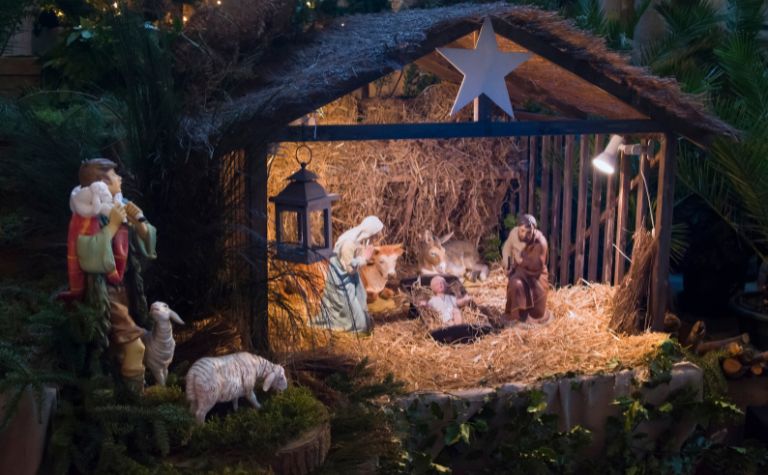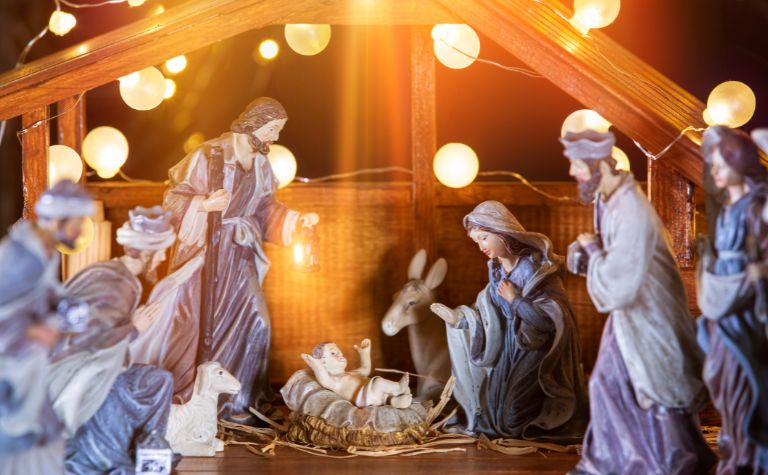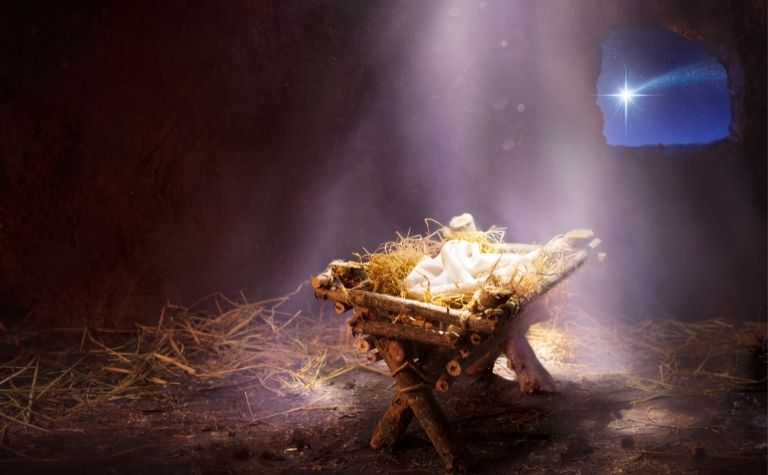The birth of Jesus Christ, celebrated as Christmas, is a time of joy, reflection, and gift-giving.
It’s a tradition that echoes the magi’s offering of gifts to the newborn Savior.
As we exchange presents during this holiday season, it’s a perfect time to delve into the biblical accounts of the gifts presented to Jesus at His birth, uncovering their significance beyond their material worth.

1. The Gift of Gold
Gold, throughout history, has been synonymous with wealth, power, and royalty.
In the biblical account found in the book of Matthew, the magi, also known as the Wise Men or the Three Kings, presented gold to the baby Jesus.
Matthew 2:11 (ESV) states, “And going into the house, they saw the child with Mary, his mother, and they fell down and worshiped him. Then, opening their treasures, they offered him gifts, gold, frankincense, and myrrh.”
The gift of gold is significant for several reasons. First and foremost, it symbolizes Jesus’ kingship and royalty.
It acknowledges Him as the King of Kings, the long-awaited Messiah foretold in the Old Testament.
Gold is the metal of monarchs, and by offering it to Jesus, the magi recognized His divine sovereignty.
Gold is also a valuable and precious resource.
It serves as a practical gift, reflecting the financial support needed to sustain Jesus and His earthly family during their time of refuge in Egypt.
In this sense, it represents God’s provision for His Son’s earthly needs.

2. The Gift of Frankincense
Frankincense is a fragrant resin obtained from trees native to the Arabian Peninsula and Northeastern Africa.
It has been used in religious rituals and ceremonies for centuries due to its pleasant aroma when burned.
In the biblical account of the magi’s visit, frankincense was one of the gifts they presented to the baby Jesus.
Matthew 2:11 (ESV) records, “And going into the house, they saw the child with Mary his mother, and they fell down and worshiped him. Then, opening their treasures, they offered him gifts, gold and frankincense, and myrrh.”
Frankincense carries deep symbolic meaning. In this context, it represents Jesus’ divinity and His role as a priest.
Priests in the Old Testament used frankincense during worship ceremonies, and it was associated with offering prayers and sacrifices to God.
By offering frankincense to Jesus, the magi recognized Him as the ultimate High Priest, who would mediate between God and humanity.
Furthermore, the aroma of frankincense rising up to heaven symbolizes the prayers of the faithful reaching the Divine.
It underscores the spiritual significance of Jesus’ birth and mission.

3. The Gift of Myrrh
Myrrh is another resin with a rich history, commonly used for its fragrance and medicinal properties.
In the biblical account of the magi’s visit, they presented myrrh as one of the gifts to the baby Jesus.
Matthew 2:11 (ESV) notes, “And going into the house, they saw the child with Mary, his mother, and they fell down and worshiped him. Then, opening their treasures, they offered him gifts, gold and frankincense, and myrrh.”
Myrrh carries profound symbolism.
It foreshadows Jesus’ sacrificial mission and the challenges He would face during His earthly life.
Myrrh was often used as an embalming agent in the preparation of bodies for burial, signifying death and suffering.
By offering myrrh to Jesus, the magi acknowledged the ultimate purpose of His life—to offer Himself as a sacrifice for the sins of humanity.
While gold, frankincense, and myrrh were precious and valuable gifts, their spiritual significance far outweighed their material worth.
These gifts were symbolic offerings that acknowledged Jesus as the divine King, the High Priest, and the sacrificial Savior.
The Gift of Love and Adoration
Beyond the gold, frankincense, and myrrh, the magi’s visit and their presentation of gifts symbolize something even more profound—love and adoration for the newborn Savior.
The magi traveled a great distance, following a star and seeking the One who had been prophesied.
Their journey was an act of faith and devotion.
They came not as kings but as humble worshipers, falling down before the child Jesus in reverence and awe.
Their gifts were not merely tokens of wealth but expressions of their hearts.
They recognized the significance of Jesus’ birth, understanding that it marked the fulfillment of ancient prophecies and the arrival of God’s promised Messiah.
Their actions demonstrated their deep faith and devotion to the One who would bring salvation to the world.
Conclusion
The gifts given to Jesus at His birth—gold, frankincense, and myrrh—carry profound spiritual significance. They represent His kingship, divinity, and sacrificial mission.
Beyond their material worth, they symbolize the recognition of Jesus as the long-awaited Messiah.
As we celebrate Christmas and exchange gifts with loved ones, let us remember the true meaning behind the tradition.
The gifts we give and receive are not just tokens of affection; they are expressions of love and adoration for the Savior who came into the world to bring hope, salvation, and redemption.
Just as the magi presented their gifts to Jesus, may our hearts be filled with love and reverence for the One whose birth we celebrate—the King of Kings and Lord of Lords, our Savior, Jesus Christ.
Related Questions
Joseph, the husband of Mary and the earthly father of Jesus Christ, is depicted in the Gospels as humble, law-abiding, and obedient. In many Christmas scenes, such as in displays of the manger, he is...
The virgin Mary, the mother of Jesus, is one of the most fascinating people in the Bible. For 2,000 years, people of different eras and cultures have marveled at her faith in God. Mary's story in the...
